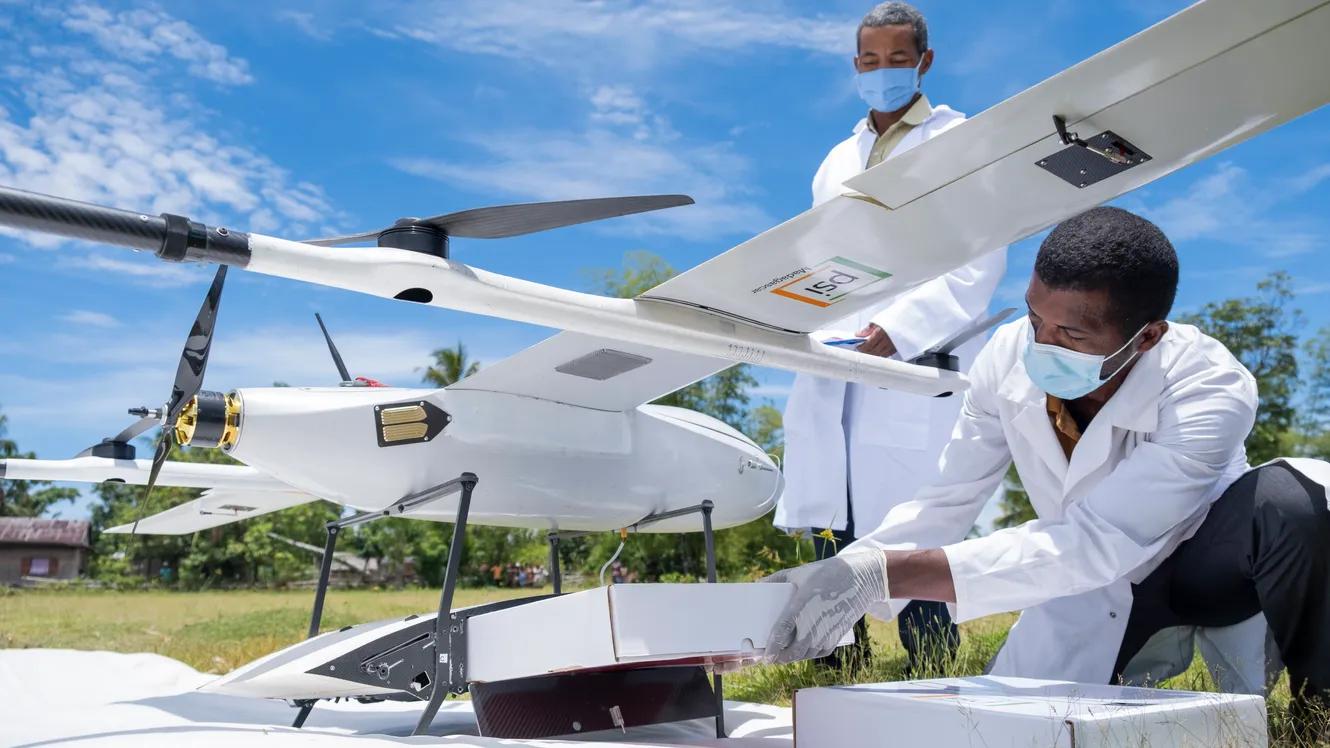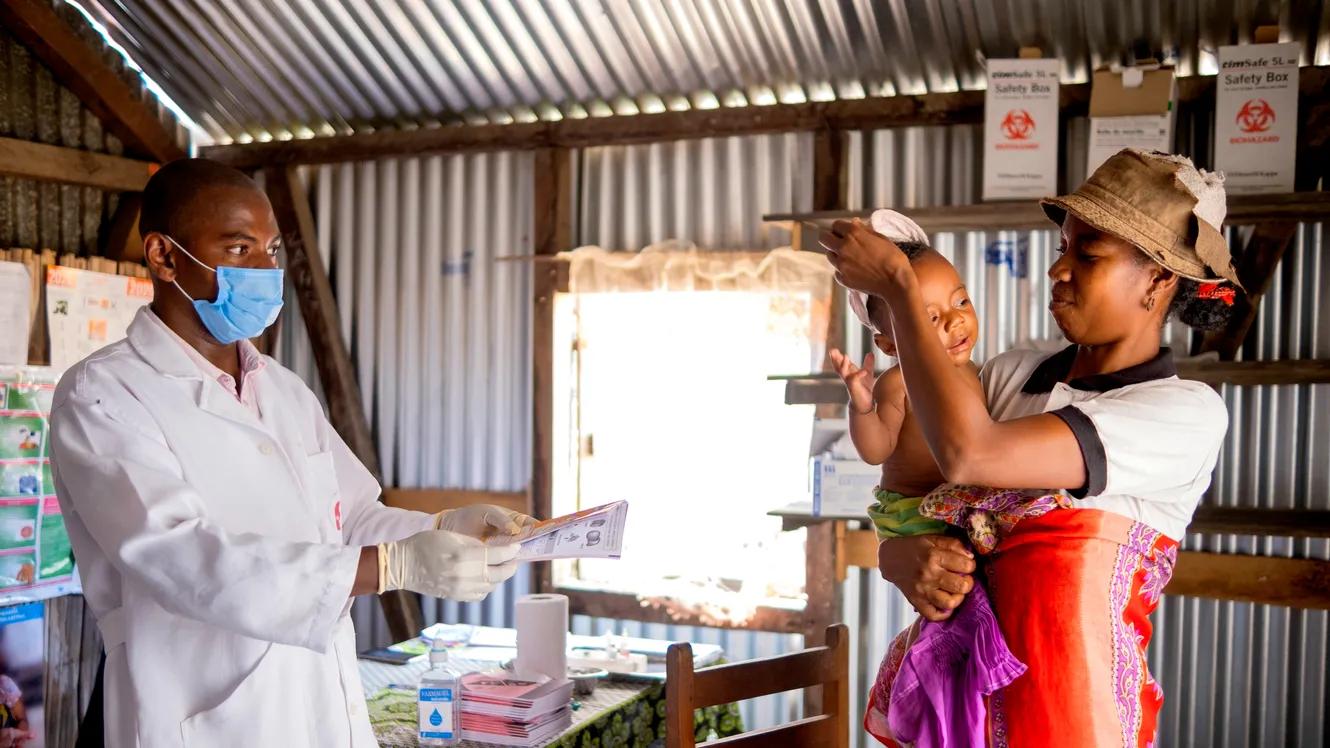Benin
Health
Training dogs to detect breast cancer, a method for screening disadvantaged women in Benin
Impact
News and Insights
In Madagascar, the NGO “Population Services International” will experiment the delivery of health commodity to about 50 hard-to-reach health facilities using drones. This project, financed by FID, will measure the operability, cost-effectiveness and impacts in terms of health outcomes on targeted communities of this deployment.
Project ported by:
Up to one-third of public health centers, serving 20% of the population, are inaccessible by road for all or part of the year in Madagascar. One consequence is that stock-outs of essential medicines are more frequent in areas far from the districts that centralize medicine supplies and health care.
For these reasons, communities end up lowering their expectations on public service and many give up health care altogether. Women suffering maternal and reproductive health issues and children under five are the first affected by this reality.

The project developed by PSI (Population Services International) through FID funding will experiment the delivery of health care commodities over the “last mile” to about 50 hard-to-reach Malagasy health facilities, using drones that complement ground transportation to improve existing supply chains.
By bridging the gap between district pharmacies and the most remote public health centers, the project aims to leverage the impact of national investments into health care infrastructures for the benefit of the most vulnerable communities.
A research team will collect and analyze the information generated by the deployment of the drones. Qualitative surveys will be conducted to measure medicine availability and health outcomes at the individual level on the one hand, and service utilization at health facilities on the other. A cost-effectiveness analysis will also be implemented on the costs of drone’s use to the health system but also to beneficiaries.
The government, through the Ministry of Public Health, will be involved from the beginning in the design and evaluation of the results. To this end, a technical committee will be formed, composed of central and district level officials, donors, and the private sector, with the dual objective of advocating for a mixed model of technology funding and, ultimately, transferring operational responsibility for the use of drones to the Malagasy government.

Remote communities in the targeted districts will have access to primary health facilities and quality medicines, giving meaning to the concept of universal health coverage. The immediate outcomes of the project are:
In the medium and long terms, the project aims to:
Projects
Projects funded by FID